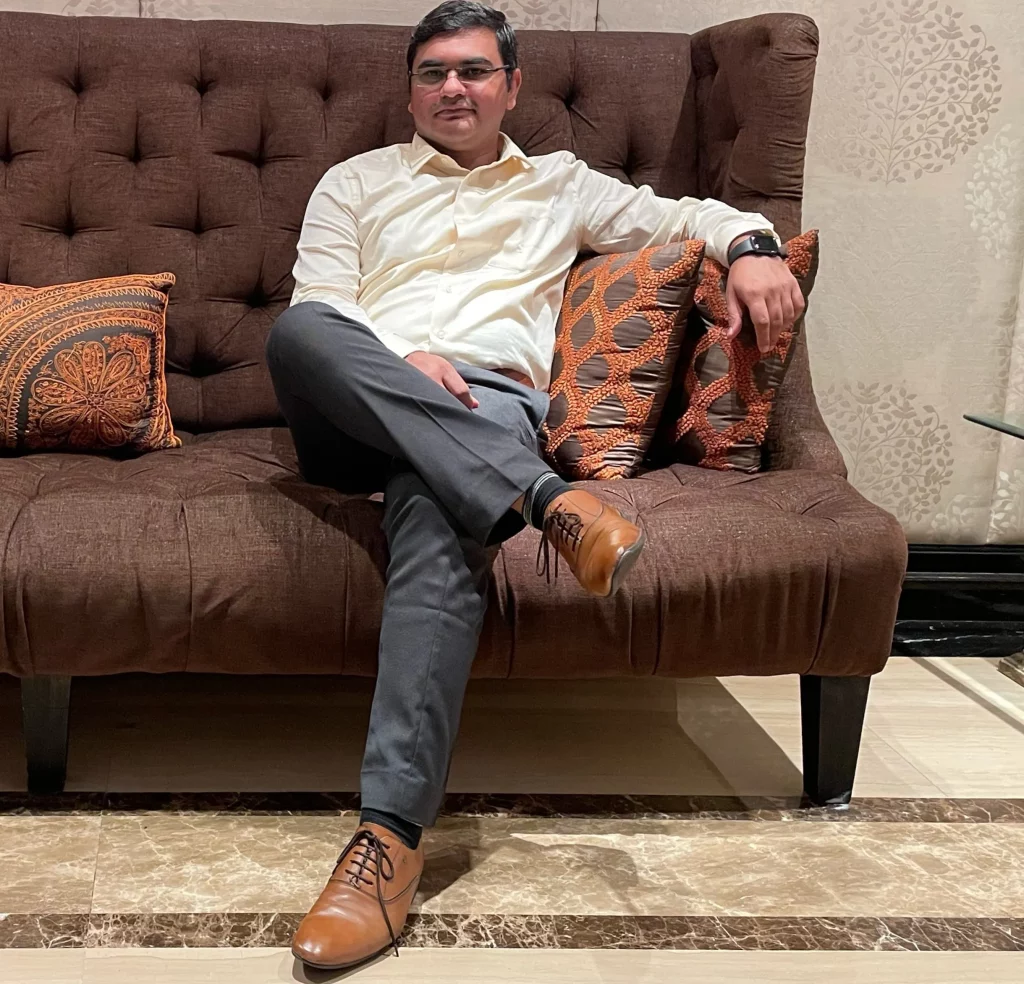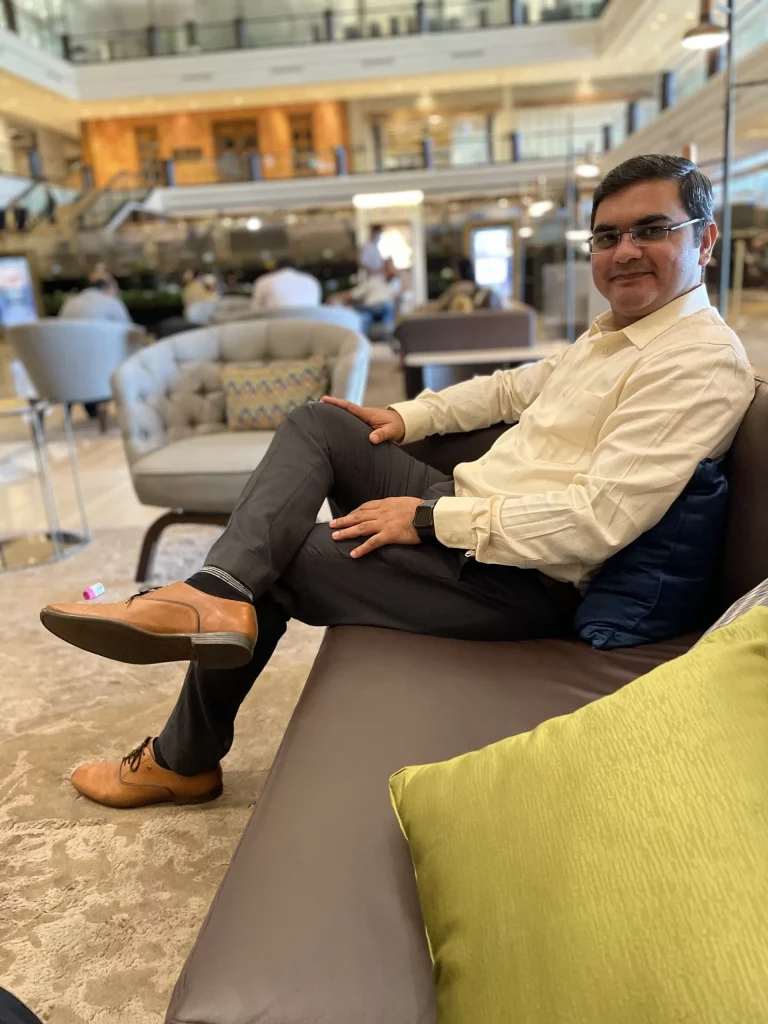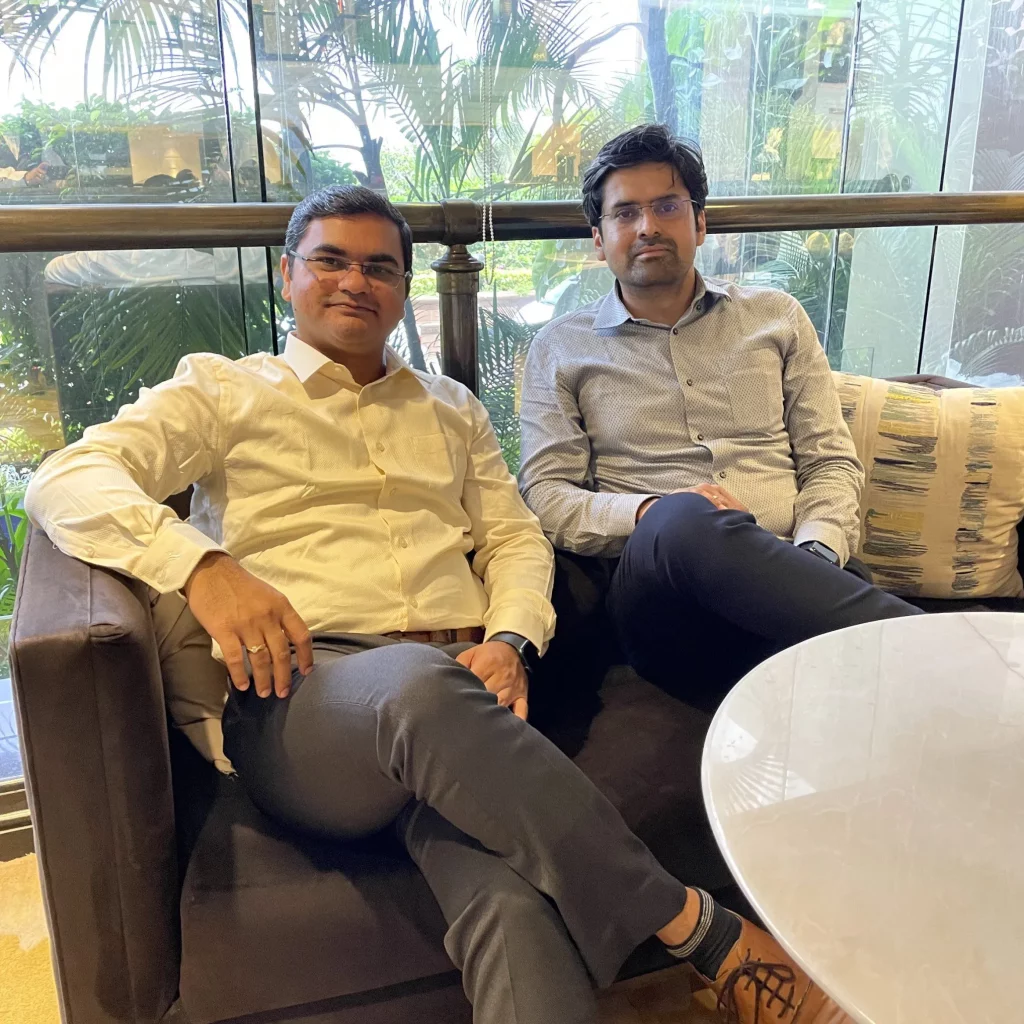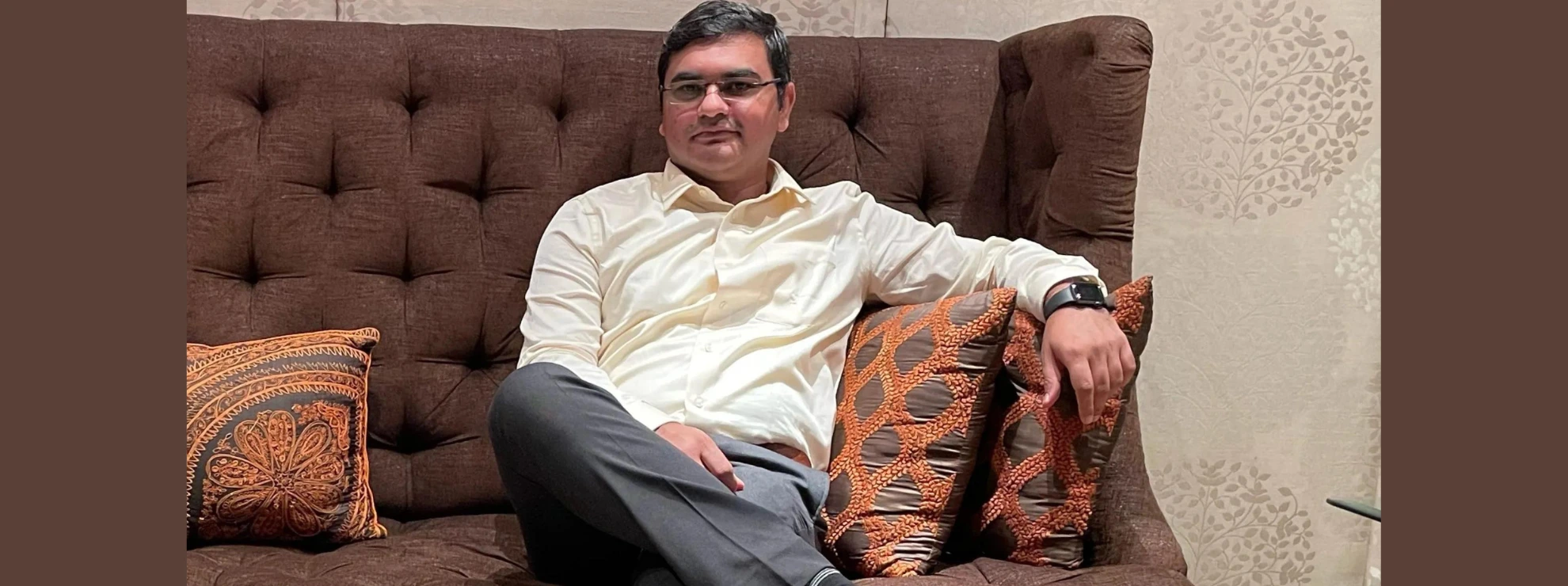(September 30, 2024) “Do you save the receipt you get when you get to a store,” Ameet Patil asks, as he begins his interview with Global Indian. No, I admit, I throw it away by the time I leave the shop. “That’s the answer I was expecting,” he says. It was the very reason why he founded Ecobillz, a SAAS-based realtime platform which uses deep tech AI to help the top-end hospitality sector hop onto the digital bandwagon. During a quick stop at the supermarket, he was handed a foot-long bill.
“Think about it – how many receipts are printed in a day?” That chance observation resulted in Ameet Patil and his co-founder Nitesh founding Ecobillz, which currently works with over 150 hospitality establishments across India and is now gearing up for its global expansion in Africa, the Middle East and South East Asia. In simple terms, if you were to stay at a five-star hotel in the country, you no longer need to spend time on a lengthy check-in, or pick up a door only to promptly lose it. Ecobillz works to digitize services across the spectrum, to make the process more efficient and reduce paper consumption to almost zero.
Being an “analytics guy,” he sat down to do the Math. As it turns out, India generates a whopping 20,000 km of receipts, with the cost of paper amounting to around ₹400 crore. At the time, he and his now-co-founder, Nitesh Singh Rathore, who were jogging buddies ever since their early professional life together, were on the hunt for a startup idea and “looking for a problem to solve.” This was in 2016 and Ameet returned to his hometown, Belgaum, to get things started. His desire to make a difference back home and hopefully, put his tier-2 city on the world map, had brought Ameet back home from the UK, where he had been on the verge of becoming a permanent resident.
The growth of a prodigy
Born in Belgaum, Ameet had “a very different kind of childhood.” His father’s job took them to the Sandoor Mines in Bellary, where Ameet studied at the Sandoor Residential School, one of the best at the time. There, his life changed. He would spend much of his time in the vast library and was drawn to science and technology. “I realised then that I was very good with computers.”
In third grade, he was introduced to his first computer, a “black-and-white television screen converted into a monitor.” Back then, a computer meant “half a room filled with hardware,” he smiles. The older kids learned programming (BASIC) but the younger ones, like himself, would play around with floppy disks. Ameet offered to become the school’s floppy disk cleaner, in exchange for being allowed to play games on the computer. He progressed quickly to programming and by the time he came to the sixth grade, had become very good at it.

Ameet Patil
That talent continued to grow and moving from one school to another helped him develop the art of being able to converse with everyone. Back in Belgaum, he would spend his days with his uncle, who had just started a ‘computer institute’, where Ameet would teach the kids who came to learn. As it happened, his first assignment as a coder in 1994 was to create a software on Windows 3.1, to digitize (as the term meant then) – the billing process for a local foundry. In college, although he admits his attendance was very poor, he was happy to step in when his teachers didn’t show up and take the class instead.
The IT boom
By the time Ameet Patil graduated, it was evident that he wasn’t cut out for a run of the mill day job. In 2000, he and a friend were the only two students to be recruited during the campus placement process. “I had an offer from Wipro but I never joined,” he says. Still, he was well and truly captivated by the IT boom in nearby Bengaluru, with Wipro, Infosys and TCS landing huge contracts. “By the time I joined Wipro, the recession had hit and all job offers had been deferred.”
This was a difficult time, Ameet says. Frustrated, “after having done so much,” he had to return to Belgaum. He joined his alma mater as a lecturer, where he taught data structures, algorithms and analysis. His brief encounter with corporate life came at Oracle in Hyderabad, where he spent two years. Like most other IT whiz kids, he was fascinated by Linux, “I would borrow the magazine PC world, which I couldn’t even afford to buy, and read every word.” He would hurry home from the office to develop his own, real-time office. It was also when he met Neil Audsley, a professor of real-time and embedded systems at the University of York.
Ameet wrote to Neil sending him notes and bits of code he had written. Audsley wrote back, impressed, asking Ameet to join him for a PhD. The idea came from out of the blue – Ameet was doing well at Oracle, the company was even planning to send him to America. “When you join an MNC, they send you abroad so you don’t leave,” he says, by way of explanation.
In the UK
“I trust you, but I want to keep my house,” were his father’s anxious parting words, as Ameet Patil left for the UK. His decision had alarmed the family for various reasons – one, it was very expensive. Besides, those were the days when doing a PhD meant a tacit admission of professional failure. Finally, his father mortgaged the family house so his son could study.

Ameet remembers his father’s words with some amusement now but it was, at the time, a sombre occasion. “I was confident,” he says. Sure enough, the faculty was so impressed with his work that he was offered the role of a research assistant and paid a stipend with all his expenses covered. Before he knew it, the young man from Belgaum was traveling the world, from Korea to Mexico, presenting papers and journals.
Four years later, he was handpicked by RAPITA systems for his expertise in real-time software. He did well there and was on the verge of becoming a permanent resident but couldn’t ignore the niggling in the back of his mind. “I wanted to come home, to start my own business in Belgaum and put my hometown on the world map,” he says. He did just that in 2009. Back in India, he founded Spundhan Softwares Pvt Ltd, which was later merged into the LinkEZ Technologies Private Limited. The company was working on cutting edge IoT ecosystems.
Ecobillz – the early days
True to his word, Ameet returned to Belgaum to start up Ecobillz in 2016, where unfortunately, the idea floundered. His customer base comprised smaller, brick-and-mortar retail stores, with a turnover of around ₹1 crore. Saving paper wasn’t really the need of the hour. “It was a struggle,” Ameet says. “Nitesh and I wondered if we had made the wrong turn.” That changed, however, when they were selected by NASSCOM’s 10,000 Startups Programme, which brought Nitesh to the organisation’s incubation centre in Domlur, Bengaluru. When they did that, “the horizon changed,” he says.
In 2017, they approached the Future Group, then at its peak. “They evaluated our product and before we knew it, were live in 2500 stores across India, all in the span of three months.”
In 2019, when the Future Group declared bankruptcy, Ecobillz was the first to go. However, Nitesh, who worked out of the NASSCOM office in Domlur, would look at the five-star hotel opposite and wonder if their prospects in the hospitality business would be any better.
The first foray into hospitality
The two co-founders, reeling from yet another setback, picked up the phone and began calling the hotel. “We made hundreds of calls, none of which were answered,” Ameet says. Finally, their persistence won the day and they were asked to meet with the General Manager. They sat down and were told, “I’m so irritated with the two of you. All the same, I’m intrigued.” One conversation was all it took.

Ameet Patil and Nitesh Singh Rathore
The Ecobillz team was offered office space in the hotel, where they remained for the next couple of months, “day in and day out, working in F&B, guest experiences,” and all the various other processes. They created a digital experience for guests to check in and check out, replacing the lengthy bill that was once the norm. “We integrated the payment gateway too,” he says.
Business was thriving once more and Ecobillz was approached by another leading five-star hotel chain. “They invited us to the Gurgaon hotel for one month.” This group, one of the largest in the country, owns 22 properties across India – Ameet and Nitesh stayed at all of them as they worked. Audits were being done on paper and huge bundles would go from various locations to the central offices. The load was so big that the hotel had a chartered flight system, carrying the audits on planes to Delhi. The process, Ameet says, would take about a month. “We digitized everything. People with the right access can log into the centralised database form anywhere. We also did automated audits, freeing up time for employees in the process.” Now, the company works with nearly all the major five-star hotel chains in India.
The company is expanding across the world and Ameet, who now lives in Bengaluru with his wife and kids, is looking at the Quick Restaurant Space as well as aggregators like Swiggy and Zomato. “And to think,” he smiles, “I almost became another cog in the brain-drain trend, had I stayed on in the UK for one more year!”
Read a similar story of Punit Pandey, merging India’s ancient Vedic wisdom with cloud technology and AI.



